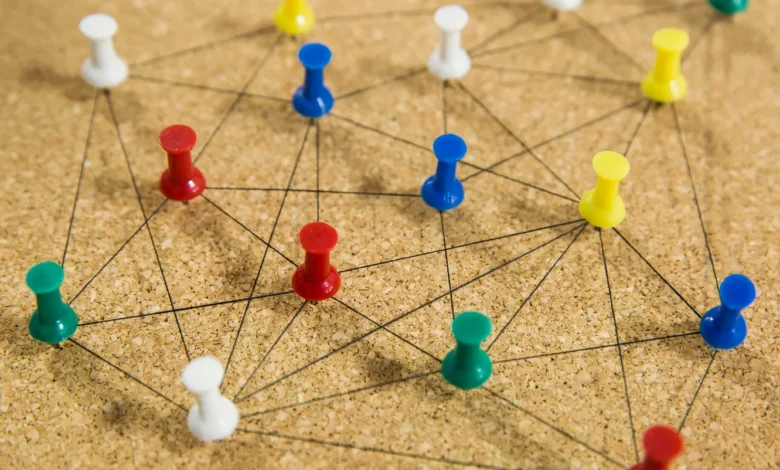Connections Hint: The Power of Networking in Today’s Digital World

In today’s interconnected world, the importance of building and maintaining connections cannot be overstated. Whether it’s for advancing your career, growing your business, or enriching your personal life, the relationships you cultivate are key to unlocking opportunities and achieving long-term success. Networking is not just about exchanging business cards or attending events; it’s about forming meaningful relationships that can lead to personal and professional growth. In this article, we’ll explore the importance of building connections, effective strategies for networking, how to strengthen existing relationships, and common mistakes to avoid.
1. The Importance of Building Connections
Building strong connections is fundamental to success in both personal and professional spheres. Connections open the door to new opportunities, offer guidance and support, and provide access to resources that might otherwise be unavailable. Whether it’s through a mentor, colleague, or friend, the people you know can often be more valuable than what you know.
When you build connections, you’re not just creating a network of individuals for the sake of it. You are forming a web of relationships that can propel you forward in various aspects of life. For example, in the business world, connections can lead to new partnerships, collaborations, and even clients. Similarly, in your career, knowing the right people can help you land job offers, gain promotions, or receive professional advice that can help you navigate challenges. Real-life examples like Steve Jobs’ relationship with Bill Gates or the partnership between Walt Disney and Ub Iwerks show how powerful and mutually beneficial professional connections can be.
Moreover, the ability to leverage your network can lead to more than just job offers or business deals. Often, personal connections can provide emotional support, guidance during tough times, and even introduce you to new perspectives that help you grow as an individual. It’s important to remember that building connections is not just transactional; it’s about creating a mutual bond where both parties offer something of value.
2. Effective Networking Strategies for Success
While the importance of networking is clear, the real challenge lies in how to do it effectively. To successfully build lasting connections, you need more than just a list of contacts—you need meaningful relationships that provide value to both you and the other party. Effective networking strategies begin with identifying your goals and aligning them with the people you want to connect with.
One of the most crucial aspects of networking is showing genuine interest in others. People can sense when you’re only interested in what they can offer you. Instead, approach networking as a way to build rapport, help others, and create long-term, beneficial relationships. Start by attending industry events or conferences where like-minded professionals gather. This provides a chance to meet people face-to-face, engage in conversations, and follow up afterward to keep the relationship going.
Social media platforms like LinkedIn and Twitter are also valuable tools for networking in the digital age. By actively engaging with posts, sharing relevant content, and connecting with people in your industry, you can expand your network far beyond local events. However, online networking requires a more thoughtful approach than simply sending out connection requests. Personalize your messages, be respectful of people’s time, and offer value in your interactions, whether by providing helpful resources or offering to collaborate on a project.
For introverts, networking may seem like a daunting task. However, networking is not about being the loudest voice in the room but about building genuine relationships. Introverts can excel in smaller, more intimate settings where they can make deeper connections without the pressure of large groups. Engaging in one-on-one conversations or sending thoughtful follow-up emails can go a long way toward establishing a solid network.
3. How to Strengthen Your Existing Connections
Building a network is only the first step. To truly reap the benefits of your connections, you must nurture and maintain those relationships over time. This requires ongoing effort and attention. It’s important to remember that relationships are not one-sided. To keep your connections strong, it’s essential to offer value and stay engaged.
One of the most effective ways to strengthen connections is through regular communication. Whether it’s through a quick email check-in, a LinkedIn message, or scheduling a coffee catch-up, staying in touch shows that you value the relationship and are willing to invest time in it. Sharing valuable content, offering assistance when needed, or simply asking how someone is doing can go a long way toward building lasting bonds.
It’s also important to recognize that networking is a two-way street. When you help others in your network, whether by offering advice or sharing resources, it creates a reciprocal relationship where both parties benefit. The more you give, the more you receive, which leads to even stronger connections. You don’t need to be constantly in touch, but periodic updates, check-ins, or offering help when someone is in need can solidify your bond.
Additionally, hosting events or meet-ups—whether in person or virtually—is a great way to bring your network together. When you connect people from your network to each other, you create a community of support that not only benefits you but also everyone involved. It can also help your connections build new relationships and grow their own networks.
4. Common Mistakes in Networking and How to Avoid Them
Networking can be a powerful tool for personal and professional growth, but it’s important to avoid common mistakes that can damage your reputation or prevent you from building meaningful relationships. One of the most frequent pitfalls is focusing solely on what you can get from others. Transactional networking—where you only reach out to people when you need something—will not lead to lasting or genuine connections. Instead, focus on building relationships based on trust, mutual respect, and shared interests.
Another mistake is failing to listen during conversations. Networking isn’t just about talking about yourself or your business; it’s about understanding the needs, challenges, and goals of others. By listening actively and showing interest in what others have to say, you create stronger bonds and opportunities for collaboration.
Overcommitting is another common mistake in networking. While it’s tempting to try to help everyone or attend every event, it’s important to know your limits. Saying yes to too many obligations can lead to burnout and weaken your relationships. Prioritize quality connections over quantity and focus on nurturing the relationships that matter most.
Lastly, networking with a lack of authenticity can harm your efforts. People can spot when you’re being insincere or when you’re only interested in advancing your own agenda. Authenticity and transparency are key to building trust, and trust is the foundation of any strong connection.
Conclusion
Building and maintaining connections is essential for success in today’s interconnected world. From opening doors to new opportunities to providing emotional support and guidance, the relationships you cultivate can have a lasting impact on your personal and professional life. However, it’s important to approach networking with a genuine desire to connect, help others, and offer value. By following effective networking strategies, nurturing your existing relationships, and avoiding common mistakes, you can unlock the true power of networking and create a network that propels you toward success.



